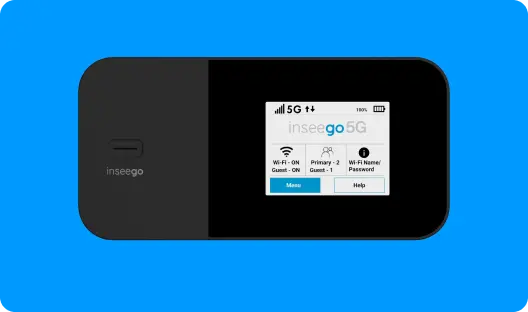More blog posts
View all blog postsSafety & Security
Private vs. public networks: Why private networks are the safer bet for enterprises

Networks have become part and parcel of both our private and our working lives. Most of us don’t give even their existence a second thought, let alone the particulars of the type of network: if it works, that’s generally good enough.
Network type is an important consideration for businesses. Different network connections have significantly different attributes that may not matter to users at home but can have serious implications for your business functions and security, among other things.
Broadly speaking, networks can be public, private, or hybrid. Each has strengths and drawbacks, which affect where and when they’re best applied, and under which circumstances.
Public networks lack security and control
Public networks are offered by large service providers and are by far the most ubiquitous types of networks available today. They include Wi-Fi networks in public or semi-public locations like coffee shops, as well as wireless 4G/LTE and 5G networks. These networks are available for general public use and, beyond the actual network provider itself, are not under the control of any of its users.
These networks are almost invariably open and affordable, making them an attractive option for both individuals and budget-conscious enterprises. These two advantages are, from a business perspective, badly outweighed by their drawbacks.
Public networks are not secure. This makes them an easy target for hackers, which is why the public network option on most devices restricts how other devices can connect to yours over a public wi-fi network.
The public nature of the network limits privacy and can potentially expose sensitive information. With no control over network settings, enterprises cannot counteract the lack of security. The openness of public networks also means they tend to have many more users, slowing down data speeds, particularly at peak usage times.
That said, some enterprises with a public-facing side of their business may choose to use a public network profile to meet specific requirements. This includes airports, hotels, and coffee shops that want to offer free wireless networks to guests. The caveat is that users are made aware that there is a risk of malware, cyberattack, or a leak of their sensitive or private information.
Private networks are fast, secure, controllable
Private networks are networks set up by an organization for its own use. Rather than providing connectivity for the general public, they exist specifically to allow users to share files and resources between devices in a closed environment, such as an office, or between employees in multiple locations.
These networks require administrators to have authorization to enter and control advanced security features, including firewalls, VPNs, security protocols, and access permissions. This greatly enhances the security of the data that travels the network. With no access for the general public, security risks from unauthorized users and network slowdowns from network congestion are both minimized, ensuring the network operates at peak efficiency and there’s no risk of sensitive data being intercepted.
However, private networks tend to be more expensive. They are more complex to set up and change as time goes on, necessitating IT expertise for initial deployment and ongoing management. The benefit for enterprises is that private networks also offer more control over what exactly is being deployed and implemented. With more control, enterprises can ensure they’re only paying for things they need rather than what they don’t.
Most importantly, private networks are vastly better equipped to protect users from malware and cyberattacks. Their greater security and customizability make them especially well-suited to industries such as healthcare and banking, which deal with sensitive information and require precise network control.
Hybrid options are flexible and scalable but complex
Another option for enterprises is a hybrid network, which combines a private and public network into one. This provides enterprises with the best of both worlds, providing organizations with greater control while making it easier to take advantage of the cost-effectiveness and scalability of public networks. With the ability to control network resources, enterprises can mitigate the risk of public access on security, as well as on congestion.
But hybrid networks are still less secure than private networks. The public can still access the network, which is a security risk, and improper access control may inadvertently grant the public access to the private part of the network.
The primary drawback of hybrid networks is their complexity. Enterprises essentially need to not only design a private network but have it effectively integrated with an existing public network without compromising security or network functionality. Setup costs, maintenance costs, and IT costs can all be significantly higher as a result.
Inseego can help your business set up a private network
With all factors taken into consideration, private networks are likely the best option for most enterprises. They offer the best balance between cost and complexity versus security and functionality offered by public and hybrid networks.
Inseego understands the importance of having a reliable and secure network for your business operations. That’s why we offer a comprehensive fixed wireless access (FWA) portfolio that includes private cellular network solutions, which provide the highest level of security and customization for businesses. Our FWA portfolio allows organizations to leverage private cellular networks using the 3.5 GHz CBRS spectrum. Businesses can establish their own private network with superior security and performance and have full control over the infrastructure and costs.
Inseego’s fixed wireless access portfolio offers a cost-effective and customizable solution for businesses looking to set up private networks. With our advanced technology and expertise, we can help your business stay connected and secure in the digital world.
Contact us today to learn more about our private wireless network solutions and talk to our network experts to learn more about how a private network can help your business.










